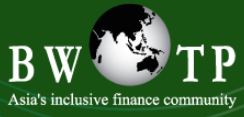Event Name: Asia-Pacific Financial Inclusion Summit
Event Date: March 21-22, 2017; optional field visits on March 23, 2017
Event Location: JW Marriott Hotel, Hanoi, Vietnam
Event Summary: Themed “Advancing Financial Inclusion in a Digital Age,” this event will include plenaries on topics such as collaboration and regulating digital financial services. Breakout sessions will address topics such as blockchain technology, gender, serving youth and reaching “the last mile.” On March 23, participants may visit with staff and clients of either Tinh Thuong Microfinance Institution or


 one of Friday’s sessions of
one of Friday’s sessions of